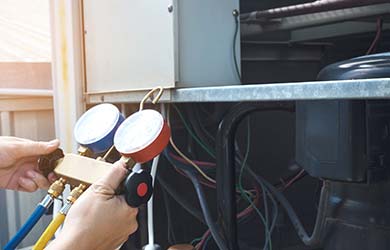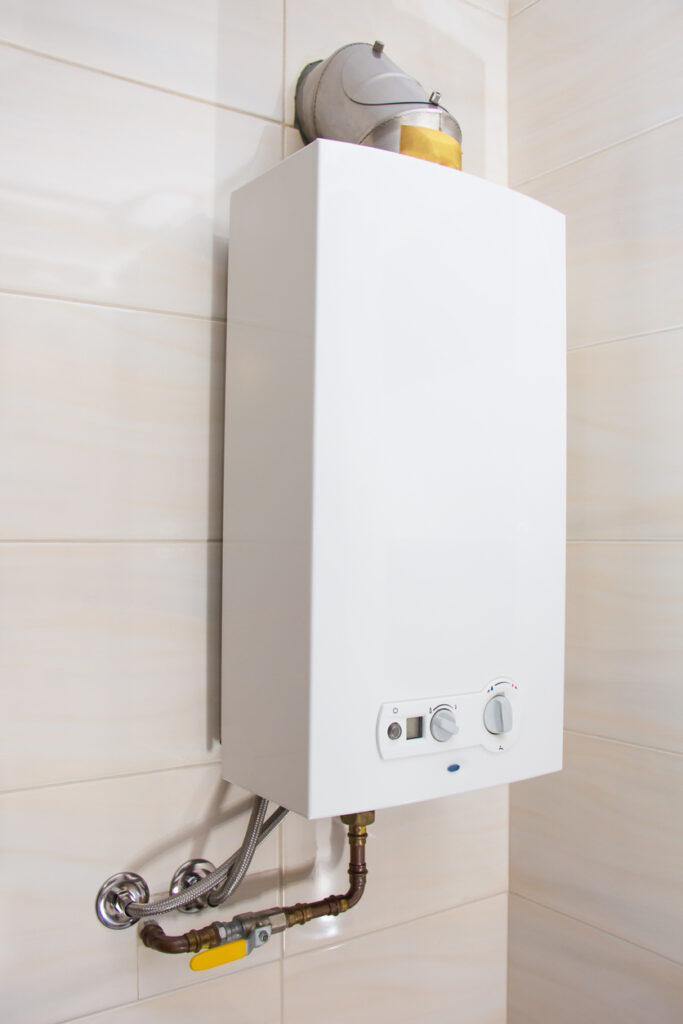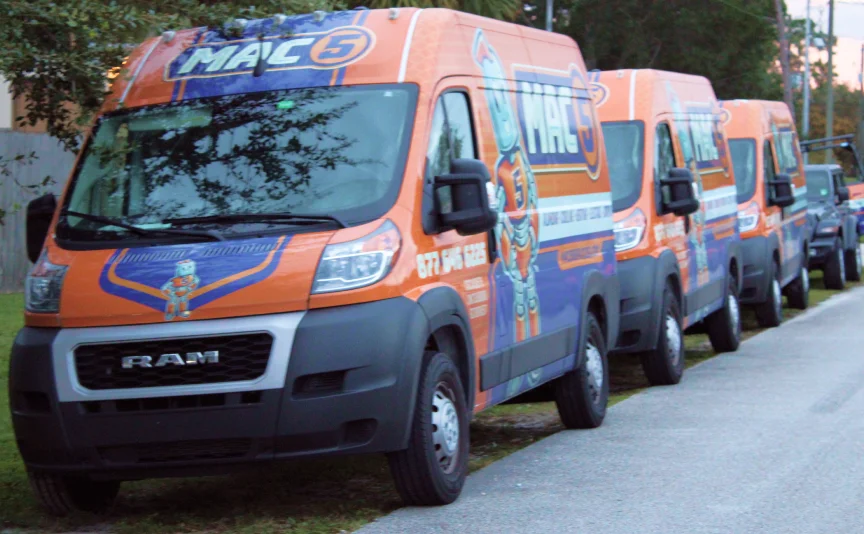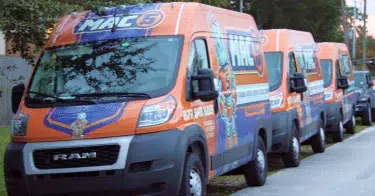Do you ever feel like your hot water pressure isn’t up to par? It’s a common problem with various possible causes.
From something as simple as leaving the faucet running to more complex issues such as limescale buildup in your hot water tank, there are many causes of low hot water pressure.
In this article, we’ll discuss why hot water pressure is typically lower than cold and the different solutions to each issue.
If you’re struggling with low hot water pressure at home, keep reading for some helpful tips from our plumbing experts!
What Causes Low Water Pressure in Homes?
Most people take the ease of turning on their easy access to clean and refreshing water—until it’s gone! Low water pressure in homes can cause all sorts of headaches.
It’s usually caused by a variety of factors, but mostly due to leaks, old pipes, mineral deposits from hard water, or clogs in either the main line or individual pipes.
That’s why it’s important to keep up with plumbing maintenance like annual pipe inspections to ensure good water flow in your system.
Not only does this prevent frustrating outages and save you money, but it also gives you peace of mind that when you need some H2O, you won’t have any trouble getting it.
Why Is My Hot Water Pressure Low but My Cold Water Pressure Fine?
One common cause of low hot water pressure is sediment and limescale build-up in the pipes or faucets, which can restrict the flow of hot water.
This build-up is caused by minerals present in hard water that solidify over time and collect on the inner walls of pipes, blocking or impeding the flow of hot water.
To remove these deposits, a professional plumber may need to be called to flush out the pipes with specialized tools and methods.
A partially closed or restricted shutoff valve can also reduce hot water pressure.
Over time, these valves can seize up from rust and mineral deposits due to changes in temperature, which restricts their ability to open fully and allows less hot water through than normal.
Replacing a faulty shutoff valve with a new one should restore adequate pressure.
Last but not least, a faulty shower valve may be responsible for low hot water pressure.
A shower valve regulates how much hot and cold water comes out at once, so if it’s damaged then it will stop some of the flow of hot water thus reducing overall pressure.
A professional plumber should also be able to identify and replace a faulty shower valve if necessary.
Common Causes of Low Hot Water Pressure in Homes
Other factors can cause low hot water pressure in your house. Let’s dissect each of these factors below:
Main Shutoff Valve Is Partially Closed
When the main shutoff valve is only partially open, it limits the amount of water that flows into your home. When this occurs, the pressure throughout the plumbing system decreases, resulting in low hot water pressure at all fixtures and appliances in your whole house.
The reduced pressure affects both your hot and cold water, as these two separate valves control the inflow of all water coming into your house.
The effects of a partially closed shutoff valve can be quite severe. When the pressure is too low, it can cause toilets, showers, and sinks to not fill up with enough water or take significantly longer to do so.
Low water pressure can also reduce water flow from taps and faucets to a trickle or stop altogether. Appliances such as washing machines and dishwashers are also affected by insufficient or low water pressure as they rely on adequate pressure for proper function.
In some cases, very low water pressure may cause water leaks in copper pipes and fixtures due to increased stress on weaker parts of the plumbing system.
It’s important to inspect your main shutoff valve regularly to ensure that it is fully open in order to get optimal performance from your plumbing system.
Water Leaks in the Cold and Hot Water Supply Lines
Another reason why you have low hot water pressure at home is leaking pipes.
When there is a fracture or break in the water lines, the flow of water becomes restricted, resulting in a decrease in pressure.
This can be caused by various forms of damage over time, such as:
- corrosion
- oxidation
- freezing and thawing
- scaling from hard water deposits
- physical damage from construction work
Corrosion occurs when exposed metal reacts with oxygen and moisture which causes it to form rust and eventually weaken and break apart.
Oxidation is similar but does not necessarily involve rusting. It can occur when any material interacts with the air.
Freezing temperatures expand water molecules within the pipe that can create cracks, then during thawing, those same cracks allow for water to escape.
Hard water deposits accumulate within pipes and over time become so thick they restrict flow.
Lastly, construction work near existing pipes may put too much stress on them resulting in damage or even complete breaks.
In each case, breaks or fractures in the pipeline may result in a loss of cold and hot water pressure either directly at the site or elsewhere down the line due to decreased volume within the system.
Malfunctioning Pressure Regulator
A faulty pressure regulator can cause low hot water pressure in multiple ways.
The pressure regulator is responsible for adjusting and maintaining the correct pressure of the hot water supply lines.
When it malfunctions, it can lead to low hot water pressure in the plumbing fixtures in your entire house.
Low hot water pressure can also be caused by a worn-out or blocked regulator, which can restrict or impede the flow of hot water, reducing its output and leading to lower-than-usual levels of water pressure.
Pressure gauges connected directly to your outdoor taps can help determine if you have an issue with your regulation system.
The ideal range for household systems should be between 52-75 PSI (pounds per square inch).
If you find that your readings differ from this range, it’s likely that there’s an obstruction or impairment with your system that needs addressing.
Main Water Supply Line Is Shut Off
Issues that lead to low hot water pressure don’t have to be complex. You could have just shut off your water supply line.
When a home’s main supply line is shut off, either intentionally or due to a broken pipe or other issues, it can result in a dramatic decrease in pressure throughout your whole house.
This sudden drop in pressure can also cause problems with pipes and seals that are not designed to handle it.
Another issue that arises from shutting off the main supply line is that air can become trapped in places where it normally wouldn’t be found, like inside gauges on tanks and even in the steel pipes themselves.
Whenever air accumulates in these places it can cause an additional drop in pressure throughout your entire system.
This exacerbates any existing problems you may already be experiencing.
In some cases, this trapped air can also create noise within your pipes which can then lead to further issues if left unchecked.
Mineral Deposits in Hot Water Tank
Sediment build-up in the water tank can cause low hot water pressure throughout a house.
Minerals such as calcium, magnesium, potassium, and sodium can build up in the hot water tank, becoming harder and denser over time.
This density not only decreases hot water flow inside the tank but also restricts the water lines.
The effects of mineral build-up are especially noticeable when using multiple fixtures or appliances at once because these appliances require large amounts of hot water.
Some examples include your bathroom sink, shower head, hot water heater, and hot tap.
When multiple fixtures are drawing from one source like a water tank with mineral build-up blocking its pipes then there is not enough available pressure to adequately run all of them at the same time.
This causes fixtures or appliances that use high volumes of water like showers and washing machines to run slowly or shut off completely.
When Is It Time to Call a Plumber?
If the hot water pressure in your home is consistently low and none of the solutions that were mentioned above have worked, then it might be time to call a plumber.
A professional plumber can identify and diagnose any issues that you may have and suggest the best possible solution.
They can also provide maintenance on your hot water system tank, cold water lines, pressure regulators, and more, to prevent any further problems from occurring.
Low hot water pressure is an annoying issue that can easily become a bigger problem if left unchecked, so it’s best to address the issue as soon as possible.
If you’re experiencing low hot water pressure in your home then be sure to contact a professional plumber for assistance.
Reliable Heating, Cooling, and Plumbing Services
Mac 5 Services understands that each home is different and requires a tailored approach when it comes to dealing with low hot water pressure.
Our professionals will take time to understand your situation before recommending any solutions or taking action.
They’ll inspect your existing system in detail before offering any recommendations, so you know exactly what you’re getting into before signing off on anything.
Our services range from water heater repair to HVAC maintenance. To learn more about our offers, please don’t hesitate to reach out!
Contact Us at 321-244-7500
We look forward to serving you!







